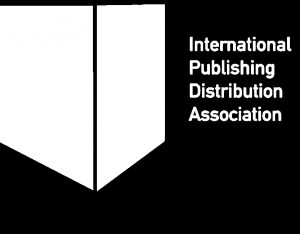Christoph Bläsi presented a general landscape of Artificial Intelligence applications in the publishing industry.
Bläsi explained that large language models – and their equivalents for other media, particularly images – have transcended the task-specific applications of the recent past, in the direction of a ´general AI´. As the potential of these systems looks mind-blowing, there are fears, particularly with respect to malign uses of these systems, but also fears that these systems will, as it were, take over the world … – and there are more concrete fears jobs might get redundant, particularly in the white-collar human resources.
During his presentation Bläsi mentioned the approach by Michael Bhaskar to summarise the impact on the core of publishing tasks, which would be as follows:
- Select contents (what Bhaskar calls that filtering).
- To give these contents the appropriate form for dissemination.
- To make sure – following a commercial or other motivation – that the contents get in fact disseminated (amplification).
- The context, including the reasons for dissemination (commercial, pro bono, …) is formalised in this approach in the form of so-called models).
Therefore the main uses are referred to filtering, framing, amplifying and models.
Some of the main consequences of AI that could expected would be:
The industry will be much more productive, which means the “overproduction” and hence potential disorientation of customer might rise.
One likely solution for the previous problem would be a more targeted content in smaller numbers of copies, but with additional echo chambers and filter bubbles as possible undesired side effects:
- Censorship / attacks on the freedom of speech.
- Challenges through climate change.
- Insufficient diversity in the industry and its products.
The three main takeaways presented by professor Bläsi were:
- AI applications in the book media system are a reality, in different stages of the value network, from authoring via gatekeeping / editing to e.g. predictive pricing and recommendation – and now there are the large (language) models.
- We have the need and the opportunity to (again) sharpen what the core of publishing is – and to define job profiles around the least / not automatable, complex value contributions and the confident use of AI algorithms.
- For publishing education this is not just any additional application add-on, but should be a new focus.
You can follow in this video the complete Bläsi’s interesting presentation.
Christoph Bläsi (born 1960) is professor for book studies at Johannes Gutenberg University Mainz, Germany (since 2009); before coming back to academia he had held senior positions in digital publishing and strategic information management of various major German publishing houses (1992-2004).
Bläsi´s current research areas include artificial intelligence applications in publishing, (particularly economic aspects) educational publishing as well as cookbooks (following an approach including Digital Humanities); at the moment, he is involved in two collaborative research projects, Aldus Up, the Creative Europe-funded European Network of Bookfairs, and AuROA, a project funded by the German government on aspects of the Open Access book in the humanities and social science.





